When I started the Ten Questions segment on my blog it was a place to share some insights from interesting people I’d met on my travels.
Now I’m about to change all of that by also including people I’d love to meet on my travels, starting with a woman who would be awesome to have a chat with anywhere in the world.
Deborah Rodriguez started out as a hairdresser with a passion for ‘vacationing with a purpose’ but when she decided to join a disaster relief team in Afghanistan in 2002 her life went in a new direction.
As a Western hairdresser in Kabul she helped women build a beauty school amidst the rubble, and when she shared the story of the Kabul Beauty School with Random House a new chapter of her life began as a bestselling author.
Now the author of five books, Deborah is also the founder of the non-partisan non-profit organisation Oasis Rescue, which educates and empowers women in post-conflict and disaster-stricken areas by teaching them both the art and commerce of the beauty industry.
Deborah’s latest book, the Island on the Edge of the World is the story of four very different women coming together in Haiti, so for this Ten Questions we’re going to sprinkle some Haitian flavour through the interview. So let’s chat…

What’s the best thing about your job?
The research, hands down. I love to travel. Researching my latest book, Island on the Edge of the World, gave me the excellent opportunity to spend time in Haiti. I love going off the beaten path to find the story for a book. I love it when I find surprises in a country or a culture.
In Haiti, there was a surprise around every corner. Working like this makes me feel so alive, like I’m having an adrenaline rush.
If you could change one thing about your job what would it be?
If I had my way, I would stay in the country that I’m writing about throughout the entire process of creating the book. But that’s difficult, due to cost and family obligations. Time and money are always a factor.
Read: The Champagne War interview with Fiona McIntosh
Another thing I wish I could do would be to fast-forward the relationships with the people I meet while traveling. As it is, I arrive in a country, and need to meet just the right people, as soon as possible, people who are willing to share their stories and their experiences. Unfortunately, it always seems to happen at the end of a trip, making me always wish I had more time.
What’s something about your role that you wish people understood?
Though I love doing my research, and though it can sound exotic, the process is, in truth, quite a challenge. To make it work, you have to be hyper-alert, and notice everything ¾ the smells, the sounds, the feelings. You are listening to people all day long, you are talking non-stop and getting yourself from place to place while and doing your best to absorb it all.
Haiti is hot. We had to travel long distances to discover locations, and to find inspirations for characters. It was not luxurious, by any means. By the end of each day, my head felt like it was going to explode. A lot of the stories I heard made me just want to weep. The process can be mentally and emotionally draining.
What’s your favourite thing to do on your day off?
If I am at home, I like to lay around in my jammies and watch Netflix, because I am always on the go. But in Haiti, it was a different story. It was tough to walk around on the streets in the city, and sometimes I felt like I was seeing the city only through a car window. So I jumped at the opportunity to travel up into the mountains, to the countryside, where the weather was cooler and the views stunning, and where I could roam freely.
What’s a cheap and cheerful food secret you (usually) only tell your friends?
Haiti has amazing food. I loved the Dire Kole ak Pwa (rice and red beans) and this spicy pickled condiment that was served with everything, called pikliz. My favorite cheap snack was the fried plantains that were sold on the street. They tasted like salty potato chips. I am a coffee freak, so starting my day with about three cups of Haitian coffee was a must.
If money was no object, where would you go for lunch or dinner?
In Haiti, I visited this fantastic hotel and restaurant near Jacmel. The Hotel Kabic Beach Club is on the sea, a long drive from Port au Prince. One afternoon the owner asked if we liked lobster, and showed up not much later holding a pair of colossal langoustines, their claws still twitching. It wasn’t long before they were sitting on our plates. Between the cost of the meal and the stay at the hotel, it did get a little pricy. But it was worth every penny.
Where do you take a friend when they come to visit?
If we were visiting Haiti, I would have to say it would be to see the Atis Rezistans, an artists’ collective in downtown Port au Prince. It is the most obscene, beautiful, and creepy place that I have ever been to.
The art is made from recycled trash, human bones and skulls (some supposedly unearthed in the cemeteries by the earthquake!) discarded baby dolls, old wood, rusted car parts…basically anything that can be found on the streets.. Lots of Vodou statuary, not to mention the sexual imagery. It seemed like every time I turned around, I’d run into a giant phallus! I felt like a silly 8th-grade girl, giggling at what I was seeing. As creepy and weird as it was, the work was actually amazingly beautiful.
Read: The Black Friday travel sales to put in your diary
What’s the best shopping experience in town?
My favorite shopping place was not in Port au Prince, but rather in Jacmel. I am a shopper, so I am always on the hunt for excellent finds.
Jacmel is an incredible artisan town on the sea. Haitian art is really outstanding, and very colorful. The streets in Jacmel were lined with shops selling paper maché, and metal sculptures, and art galleries featuring local painters. It seemed like everyone in that town was creating something. I personally came home with three beautiful paintings, and a couple of paper maché masterpieces from the talented Charlotte Charles, who also served as an inspiration for one of the characters in the book.
Is there a local tourist cliché that’s actually worth doing?
I would highly recommend visiting the Hotel Oloffson. Although not a cliché by any means, it is well known.

The hotel was the real-life inspiration for the fictional Hotel Trianon in Graham Greene’s novel, The Comedians, along with being the inspiration for the hotel in my latest book Island on the Edge of the World. This gothic gingerbread mansion is full of quirky Vodou art. And the hotel’s motto is Check in, write a book! Famous names such as Marlon Brando, Jackie Onassis, and Mick Jagger have all checked in to the Oloffson. It just so happens that the owner of the hotel is Richard Morse, the lead vocalist of the amazing roots music band RAM. Their weekly performances, just inside the hotel lobby, are a must.
Is there a tourist attraction nearby that you can’t believe you still haven’t visited yourself?
One place that I have not been to, but is on my list of things to see next time I visit Haiti, is the Citadelle, in the north. Built and inhabited by King Henri Christophe after the division of the country, the citadel remains as one of Haiti’s most historic and beautiful monuments.
Thanks Deborah! To find out more about Deborah’s work, life and travels you can check out her website DebbieRodriguez.com or better yet, if you’re close enough to Mazatlan, Mexico, you can treat yourself to a new ‘do or a spa day at her salon, Tippy Toes.



Leave a Comment